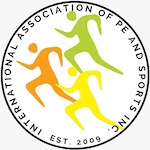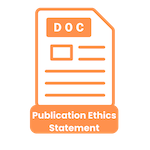Pengaruh Latihan Fundamental Movement Skills (FMS) pada Anak dengan Gangguan Koordinasi Perkembangan (Dyspraxia)
Abstract
Latar belakang penelitian ini adalah adanya fenomena kurangnya kemampuan fundamental Movement Skill (FMS) pada anak dengan gangguan koordinasi perkembangan (dyspraxia). Tujuan dari penelitian ini adalah untuk mengkaji pengaruh model latihan gerakan fundamental Movement Skill (FMS) terhadap peningkatan kemampuan Fundamental Movement Skill (FMS) pada anak dengan dyspraxia. Sebanyak 10 anak secara sukarela dan dengan persetujuan orang tua menjadi kelompok eksperimen (DYS) [exp], yang menerima 6 minggu pelatihan FMS. FMS dinilai menggunakan Test of Gross Motor Development-2. Metode dalam penelitian ini menggunakan metode penelitian pre eksperimen. Desain yang digunakan dalam penelitian ini adalah The one group pretest-postest design. Hasil penelitian menunjukan model latihan gerakan fundamental Movement Skill (FMS) berpengaruh terhadap kemampuan gerakan fundamental Movement Skill (FMS). terbukti dari hasil analisis data penelitian pretest nilai rata-rata latihan gerakan fundamental Movement Skill (FMS) yang diperoleh yaitu 13,23, sedangkan hasil posttest nilai rata-rata latihan gerakan fundamental Movement Skill (FMS) yang diperoleh yaitu 23,13, berarti adanya peningkatan yang diperoleh setelah melakukan latihan gerakan fundamental Movement Skill (FMS) sehingga hal ini menunjukan adanya pengaruh yang signifikan dari model latihan gerakan fundamental Movement Skill (FMS) terhadap kemampuan gerakan fundamental Movement Skill (FMS) pada anak dengan dyspraxia. Dengan demikian dapat disimpulkan bahwa model latihan gerakan fundamental Movement Skill (FMS) memberikan pengaruh yang signifikan terhadap terhadap peningkatan kemampuan Fundamental Movement Skill (FMS) anak dengan gangguan koordinasi perkembangan (dyspraxia). Implikasi penelitian ini secara teoritis adalah bahwa model latihan FMS bisa menjadi acuan teori dan referensi pengetahuan bagi guru pendidikan jasmani adaptif yang mengajar di sekolah khusus dalam melaksanakan pembelajaran yang terkait dengan dyspraxia dan implikasi secara praktis dari hasil penelitian ini dapat digunakan oleh para guru terutama guru pendidikan jasmani adaptif sebagai model latihan untuk meningkatkan FMS pada siswa dengan dyspraxia.
References
American Psychiatric Association. (2013). No Title. In Diagnostic and statistical manual of mental disorders (5th ed. Arlington, VA: American Psychiatric Association.
Burrows, E. J., Keats, M. R., & Kolen, A. M. (2014). Contributions of after school programs to the development of fundamental movement skills in children. International Journal of Exercise Science, 7((3)), 236–249.
Cairney, J., Hay, J. A., Veldhuizen, S., Missiuna, C., & Faught, B. E. (2010). Developmental coordination disorder, sex, and activity deficit over time: A longitudinal analysis of participation trajectories in children with and without coordination difficulties. Developmental Medicine and Child Neurology, 52(3), 67–72. https://doi.org/10.1111/j.1469-8749.2009.03520.x
Capio, C. M., Poolton, J. M., Sit, C. H. P., Holmstrom, M., & Masters, R. S. W. (2013). Reducing errors benefits the field-based learning of a fundamental movement skill in children. Scandinavian Journal of Medicine and Science in Sports, 23(2), 181–188. https://doi.org/10.1111/j.1600-0838.2011.01368.x
Curriculum Development Institute. (2013). An overview of the learning topics in the six strands of PE KLA. Fundamental movement. HKSAR: Education Bureau;
Dewey, D., & Volkovinskaia, A. (2018). Health-related quality of life and peer relationships in adolescents with developmental coordination disorder and attention-deficit–hyperactivity disorder. Developmental Medicine and Child Neurology, 60(7), 711–717. https://doi.org/10.1111/dmcn.13753
Ferguson, G. D., Jelsma, D., Jelsma, J., & Smits-Engelsman, B. C. M. (2013). The efficacy of two task-orientated interventions for children with Developmental Coordination Disorder: Neuromotor Task Training and Nintendo Wii Fit training. Research in Developmental Disabilities, 34(9), 2449–2461. https://doi.org/10.1016/j.ridd.2013.05.007
Fraenkle, W. and H. (2012). How to designe and evaluate Research in education,. Mc Graw hill, An amprint of the McGraw-Hill Companies. Inc.
Hendrix, C. G., Prins, M. R., & Dekkers, H. (2014). Developmental coordination disorder and overweight and obesity in children: A systematic review. Obesity Reviews, 15(5), 408–423. https://doi.org/10.1111/obr.12137
Jarus, T., Lourie-Gelberg, Y., Engel-Yeger, B., & Bart, O. (2011). Participation patterns of school-aged children with and without DCD. Research in Developmental Disabilities, 32(4), 1323–1331. https://doi.org/10.1016/j.ridd.2011.01.033
Leonard, H. C. (2016). The impact of poor motor skills on perceptual, social and cognitive development: The case of developmental coordination disorder. Frontiers in Psychology, 7(MAR), 1–4. https://doi.org/10.3389/fpsyg.2016.00311
Logan, S. W., Robinson, L. E., Wilson, A. E., & Lucas, W. A. (2012). Getting the fundamentals of movement: A meta-analysis of the effectiveness of motor skill interventions in children. Child: Care, Health and Development, 38(3), 305–315. https://doi.org/10.1111/j.1365-2214.2011.01307.x
Lubans, D. R., Morgan, P. J., Cliff, D. P., Barnett, L. M., & Okely, A. D. (2010). Fundamental movement skills in children and adolescents: Review of associated health benefits. Sports Medicine, 40(12), 1019–1035. https://doi.org/10.2165/11536850-000000000-00000
Orami. (2021). Dyspraxia, Kondisi Neurologis Kompleks yang Memengaruhi Keterampilan Motorik Title. Orami Publisher. Retrieved from https://www.orami.co.id/magazine/dyspraxia
Stodden, D. F., Goodway, J. D., Langendorfer, S. J., Roberton, M. A., Rudisill, M. E., Garcia, C., & Garcia, L. E. (2008). A Developmental Perspective on the Role of Motor Skill Competence in Physic...: EBSCOhost. Quest, 60(2), 290–306. Retrieved from http://web.a.ebscohost.com.apollo.worc.ac.uk/ehost/pdfviewer/pdfviewer?vid=4&sid=3691cf57-35ce-47c0-8601-d42fdf27c2b7%40sdc-v-sessmgr06%0Ahttps://doi.org/10.1080/00336297.2008.10483582

This work is licensed under a Creative Commons Attribution 4.0 International License.


















